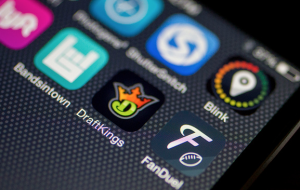Should college athletes get paid? While experts and athletes alike fall on either side of this question, there has been major discussion on what the NCAA intends to in the future. While nothing is set in stone, there are few key reasons as to why it might be a good idea to for college athletes to start making some money.![]()
It’s a Full-Time job
Typically, College Athletes devote around 40 hours a week (which is a typical American work week) to his or her sport and that does not include work done in the classroom or hours doing homework. Another important thing to consider is that these athletes have to maintain a certain grade point average (gpa) to be able to stay with the team during the season and keep their scholarship. It can add a lot of stress on the athlete both mentally and physically.
Help Manage Money
If student athletes would get paid it would be a great way to teach them how to manage their money during college and beyond. These useful tools can be extremely beneficial for students to grasp the importance of having a savings accounts early on so when they graduate college they are not faced with the financial struggles we so often hear about recent graduates.. Whether they go on to make millions playing professional or chose to pursue different dreams, these skills are both practical and transferable for student athletes.
Raise the Level of Play
Some suggest that paying student athletes would raise their level of performance. Many believe this can ruin the competitiveness of college sports, but if we think about professional athletes, and how their pay scale ranges significantly, this argument really goes nowhere. In the professional ranks, when athletes perform at a high level they are compensated with a salary increase and a bonus. Now, for those young and hungry college students who give everything they have one the field already, why wouldn’t you think it boost their work ethic even more? If students did not have to worry about their finances, they could spend more time focusing on practicing for their specific sport and doing well in school.
It is still to be seen if the NCAA will eventually pursue this idea, but I can tell you one thing, it will be constantly discussed among players, coaches and NCAA officials for years to come.
